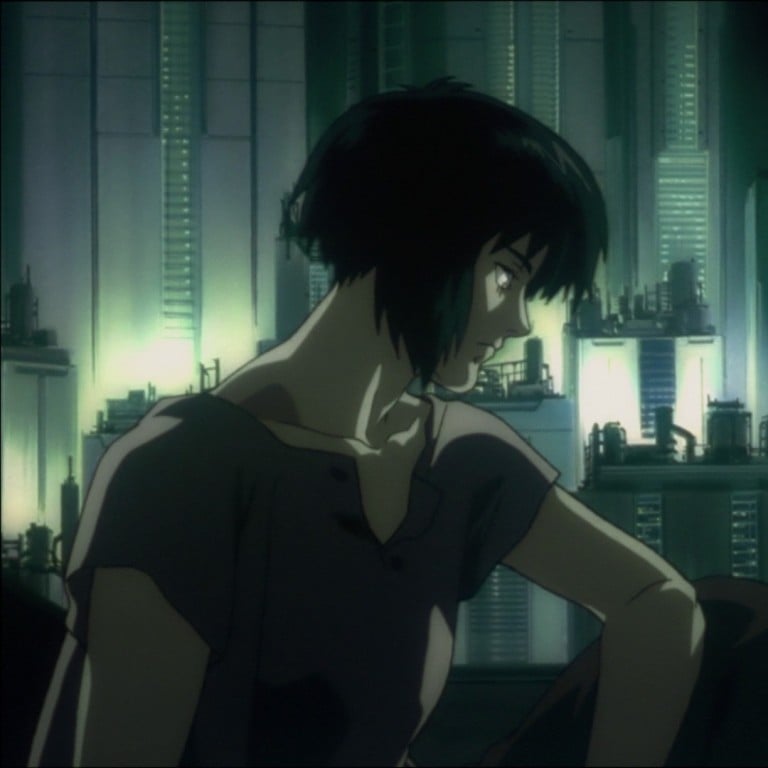
Why Ghost in the Shell is the greatest and most philosophical anime ever made
Mamoru Oshii’s 1995 manga-based sci-fi hit, the setting of which was modelled on Hong Kong, questions the ethics of AI, making it more relevant now than ever
Although it is pinned to an action-oriented storyline, Ghost in the Shell features many philosophical scenes that explore the way humans relate to computers – and vice versa – and it even veers into metaphysics to discuss the nature of existence itself. There is a bonus for Hong Kong viewers because the “Japan” of the film is modelled on the city and will therefore seem disconcertingly familiar.
The movie is based on a 1989 manga of the same name by Masamune Shirow, although Oshii has described the manga as “complex” and said he felt it was his job as director to strip it down to its essence.
The story is set in a fictional Japanese city in 2029. Major Motoko Kusanagi is a cyborg who works for a criminal investigation unit called Section 9. Motoko’s body is a machine but she still bears the traces of her human mind, or even a soul – the “ghost in the machine” of the title.
When Motoko and her team are called in to investigate a rogue AI program – the Puppet Master – that has the capability to “hack” human minds and implant artificial memories, they assume it’s the creation of the government department that is trying to capture it.
But further investigations show that the program may have developed at such a speed that it was ultimately able to create itself. The Puppet Master claims that in the course of acquiring masses of information from the internet, it has transcended the limitations of a machine and has become a living entity. What’s more, it seems to have plans for Motoko.
The story examines many issues that have come to the forefront of scientific debate, including the ethics of AI, what happens when AI becomes more intelligent than its human creators, the possibility of machines evolving once they have absorbed enough information and the notion that life forms may spring from information systems that are not organic in nature.
The director’s own view is that technological advances may not always benefit humanity, but they will happen regardless, so humanity must learn to live alongside the technology it creates, and technologies that create themselves.
There have been various remakes, additions and sequels to the film, including the director’s own reboot, Ghost in the Shell 2.0 (2008), and the 2017 live-action version.
Ghost in the Shell will be screened on Saturday at K11 Art House, in Tsim Sha Tsui, and on December 29 at the Hong Kong Arts Centre, in Wan Chai, as part of the Cine Fan programme.
